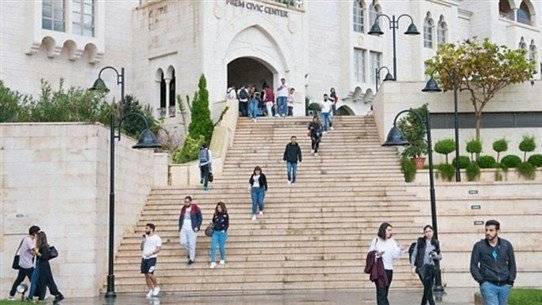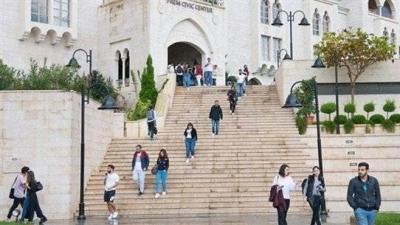It seems that private universities in Lebanon are exercising all forms of class violence against students after they imposed dollarization on tuition fees. Since the beginning of the crisis to today, dozens of students have taken to the streets demanding that university fees not be tied to the US dollar. They have the right to pay their fees in Lebanese pounds since they are studying in Lebanon, not abroad. How are they expected to come up with these enormous amounts when most salaries are still paid in pounds? Why should students bear the financial losses that private university administrations are experiencing? Has education in Lebanon also become "imported from abroad" like medicine, food, and fuel? Most private universities are announcing the dollarization of fees one after another. There have been several adjustments since the crisis began. What can a student without dollar income do? What’s the alternative? The Lebanese University? The only public university, which is supposed to cater to lower-income students, is crumbling and its future is uncertain. Most students will abandon their studies, not in objection to the decision, but due to their inability to bear these overwhelming burdens, or they will turn to other, less expensive universities, though not of the same quality.
### Tuition Fee Adjustments Since the Crisis
The Lebanese American University and the American University of Beirut initiated a rise in tuition fees for the Spring 2021 semester, initially at an exchange rate of 3900 pounds to the dollar, and then at 8000 pounds to the dollar. While other universities are considering their final decisions, the Lebanese American University chose full dollarization for all university fees starting Fall 2022 due to the widening gap between what they earn and what they pay in operational costs, along with the migration of faculty and skilled human resources. The American University of Beirut is also gradually moving towards full dollarization, with 60 percent of tuition in dollars at the beginning of the 2022-2023 academic year, increasing to 80 percent the following year, eventually requiring 100 percent of fees to be paid in dollars, while offering scholarships and assistance to students with discounts of around 40 percent on tuition fees. Similarly, Saint Joseph University decided to increase the tuition fee by 250 dollars (fresh) for each student, payable in two equal installments (125 dollars each), although the university had promised its students during enrollment that it would not modify tuition after pegging the dollar at 2700 pounds. The university justified this fee in dollars because "72 percent of expenses are paid in dollars, and to maintain the educational staff who are leaving the university for not receiving salaries in dollars, in addition to a shortage of external funding." As of today, there is no final decision yet, but the atmosphere suggests that there is no escape from dollarization, which should not exceed 30 percent at Saint Joseph University, according to the President of the Association of Lebanese Universities, Salim Dakkach.
### Justified and Unjustified Dollarization
According to economist Jihad Al-Hakim, "dollarization of fees may be justified for prestigious universities that are characterized by better educational standards and rely on quality benchmarks, so as to maintain human resources of professors and professionals who were the main reason for giving them this distinction." He also considers that "these universities have delayed dollarizing their fees because they have lost a significant number of their qualified faculty members." Al-Hakim points out that "the majority of those attending this type of university are affluent and able to bear its burdens, in addition to the scholarships these universities provide to many less fortunate students. However, the other group of students, who tend to enroll in other universities, are usually low-income students who work to cover their educational expenses; there is no justification for dollarizing their fees, especially since many universities have accumulated substantial funds over the years, particularly the commercial ones."
He poses a key question: "Why has every sector in Lebanon been priced based on the black market dollar, except for education? There are many families living off this sector." He concludes by stating: "Education should be available to everyone, of course, but it is available globally for everyone through the national university, where investment is made to accommodate as many serious and capable students as possible."
Ultimately, however, the student remains the sole victim in this situation. The crisis in Lebanon has deprived them of their right to live with dignity and forced them to entirely change their way of life, bearing unexpected burdens that now jeopardize the most critical step in securing their future.




